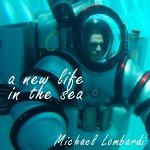 The deeper I probe into creative writing and various multimedia tools, the more I am both impressed yet intimidated. At the tail end of 2010, I took a hard look at traffic patterns and readership here at ‘A New Life in the Sea’, and came to realize that it was time to ramp things up a little bit. Where to begin?!?!?! There is so much behind the scenes that goes into web and blog development – writing (functional) code which is an entirely new language, implementing tools for syndication, engineering for search engine optimization, not to mention making the front end visually appealing and readable. Content itself is important, but the rest of these bits and pieces are the nuts and bolts of a good website.
The deeper I probe into creative writing and various multimedia tools, the more I am both impressed yet intimidated. At the tail end of 2010, I took a hard look at traffic patterns and readership here at ‘A New Life in the Sea’, and came to realize that it was time to ramp things up a little bit. Where to begin?!?!?! There is so much behind the scenes that goes into web and blog development – writing (functional) code which is an entirely new language, implementing tools for syndication, engineering for search engine optimization, not to mention making the front end visually appealing and readable. Content itself is important, but the rest of these bits and pieces are the nuts and bolts of a good website.
I designed and maintain the https://oceanopportunity.com/ website for the organization that benefits from the work here on this Blog. This process has served as my education in all things web-tech. As I carried over some of these tools and knowledge to Blogger, I found that I quickly became out of my element. New tools, new languages such as xml, css, php, and others became meshed to one. I felt like the proud leader of a developing country setting foot into a United Nations meeting and becoming lost in worldly translations, realizing that I must return to my humble beginnings and find out how to exponentially increase our capabilities to stay in the game, let alone play it well.
So, like any developing nation – with limited resources – would, I began to investigate opportunities for partnering and engaging freelancers into ‘a New Life’. And so enters http://www.guru.com/.
I first learned of Guru.com through a colleague who sought web development assistance for an online retail project. The way it works is you post a project, identify your needs and budget, timetables to get the work done, and any other particulars; and within hours dozens (or more) highly qualified individuals place bids with brief proposals to get your job done. Truly amazing – no need to dig deep and research local companies, get recommendations, portfolio samples, and so on. It’s all right there at your fingertips on Guru.com. Even more interesting is the global reach. My listed project to do some behind the scenes work here involved elements of graphic design, and creating functional elements for a smoother user interface. I received proposals from India, Malaysia, the US, Canada, and Australia. I accepted the bid proposal from a gentleman in Australia, and we were off and running…
So here we are today, with a fresh, clean look, and some new tools to help us keep up with the times! Thanks to globalization, this Blog has been worked on by folks in Australia and India – thus we have done our small part in fostering international commerce and relations.
The fact that we can so easily collaborate, interact, and conduct business across borders like this today makes me think in terms of a sustainable human presence here on Earth. In such a virtual world, data – the vast array of 1’s and 0’s is at the epicenter of how our species works. It is invaluable, and to a scary point in the road. What if it were all vaporized? What if one cataclysmic event (which has happened in Earth’s history) wiped out data as we know it? it would without question be the end of modern times.
By shear coincidence, I am reading Erich von Daniken’s ‘Chariots of the Gods’ in prep for a next series of creative writing here on ‘a New Life’. In von Daniken’s investigations of ancient civilization (say pre-5000 years before present), he clearly presents the difficulty in drawing conclusive evidence of the ancients’ various technologies, or lack thereof. This is largely due to the scarcity in written historical record. Paper often does not survive the ages, so we are left with that etched in stone. But it is not to say that other records, or data collections did not exist. In fact, von Daniken briefly describes archaeological discoveries of what may be ancient computers, and even data storage devices (ex. crystal skulls).
Five thousand years from now, after a cataclysmic event, what would be left of us? With all electronic data evaporated from the face of the Earth, and paper records having disintegrated back into the Earth, only stories passed along by a small percentage of survivors would remain. For certain, there would be no record of little ole me engaged in a virtual international collaboration with graphic designers and web developers in three countries!
The Guru’s of our yesteryear may have been engaged in a completely different psychological and/or paranormal paradigm – a convention that is foreign, but not unheard of, today. Whereas today we are connected with bits and bytes.
Who knows what tomorrow will bring.

